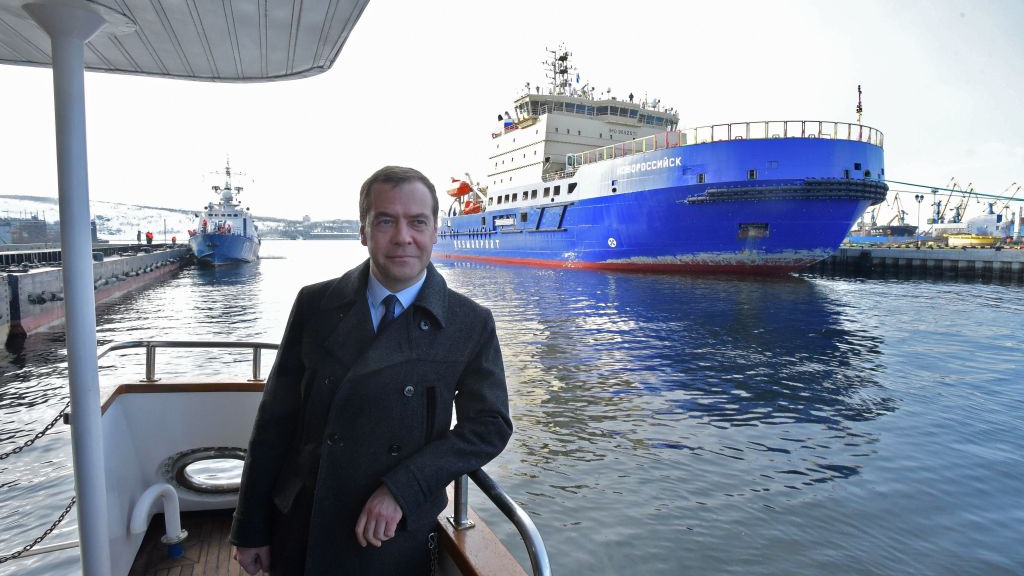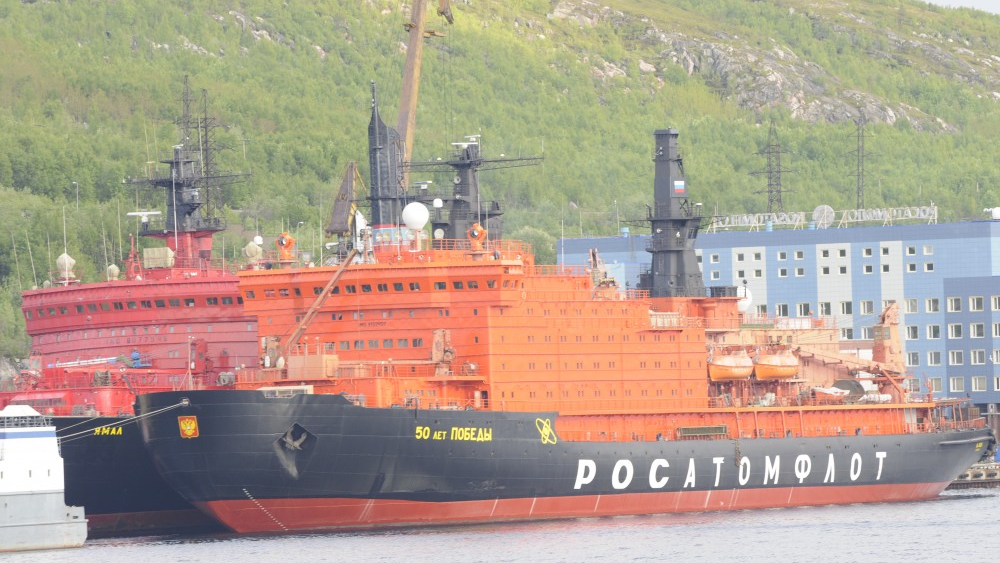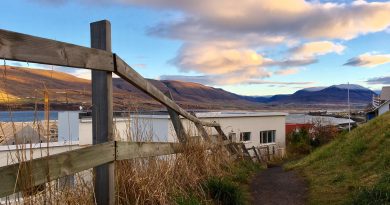In a last move as PM, Medvedev secured funding to first Russian Lider-class icebreaker

On January 15th, the same day as he delivered his resignation, Dmitry Medvedev signed a resolution allocating 127 billion rubles (€1,85 billion) to build a nuclear-powered icebreaker bigger and more powerful than anything that previously has sailed in icy Arctic waters.
What many septics believed was an unrealistic, fantasy project of Arctic ‘giantism’ now turns to be reality.
The Lider-class icebreaker will have a displacement of 55,000 tons, about twice the weight of the current Arktika-class icebreakers like the «Yamal» and «50 Let Pobedy».
Medvedev’s resolution states that the funding goes to Rosatom, Russia’s state nuclear corporation, in charge of both the Northern Sea Route infrastructure and the operation of the nuclear-powered icebreaker fleet sailing out of Murmansk.
[VIDEO CAPTION] Rosatom promotional video of the Lider class icebreaker.
It was RIA Novosti that first reported about the Prime Minister’s decision to provide funding build the first Lider-class icebreaker.
The money is allocated for the period 2020-2027.
It is planned to build three Lider-class icebreakers with deliveries from 2027 to 2035.
With capability to break through 4,1 meter thick ice, the Lider can practically sail year-around in all known ice-conditions along the Northern Sea Route north of Siberia as well as crossing the Trans-Polar Route on the topp of the world.
The vessels are twice the size and 13,5 meters wider than the icebreakers of the 22220 class currently under construction at the Baltic Yard in St. Petersburg.

Two reactors
Powered by two RITM-400 reactors, the steam generators will provide 120 MW to the propellers, making the vessels more powerful than anything else that ever has sailed the icy Arctic waters. In design, the reactors are similar to the RITM-200 onboard the 22220 class, but more powerful.
The first of the 22220 icebreakers, the «Arktika» will be delivered and sail north to Murmansk later this year, while the two others, the «Sibir» and «Ural» is planned for delivery in 2021 and 2022.
With funding now secured from the Government, the first construction of the Lider-class icebreaker is likely to start at the Zvezda Shipyard in the Far East later this year.
Crusing the ice along the Northern Sea Route, the Lider icebreakers will open wide ship lanes across the region for escorts of commercial ships, including the largest LNG tankers sailing east from the Yamal region towards the Pacific.
Related stories from around the North:
Antarctica: Summer construction season begins at British research station in Antarctica, Eye on the Arctic
Canada: Canada’s new Arctic patrol ships could be tasked with hurricane relief, CBC News
China: Details of China’s nuclear-powered icebreaker revealed, The Independent Barents Observer
Finland: Finland’s aging icebreaker fleet needs modernization, Yle News
Germany: MOSAiC international science expedition completes crew transfer in Central Arctic, Eye on the Arctic
Iceland: Geoengineering climate fixes popular at Arctic Circle assembly, Mia Bennett – Blog
Norway: Hybrid-powered electric cruise ship navigates Northwest Passage, CBC News
Russia: Moscow adopts 15-year plan for Northern Sea Route, The Independent Barents Observer
United Kingdom: UK’s new flagship polar research vessel officially named Sir David Attenborough, Eye on the Arctic
United States: New U.S. icebreaker will focus on Antarctic, says Coast Guard boss, Alaska Public Media



